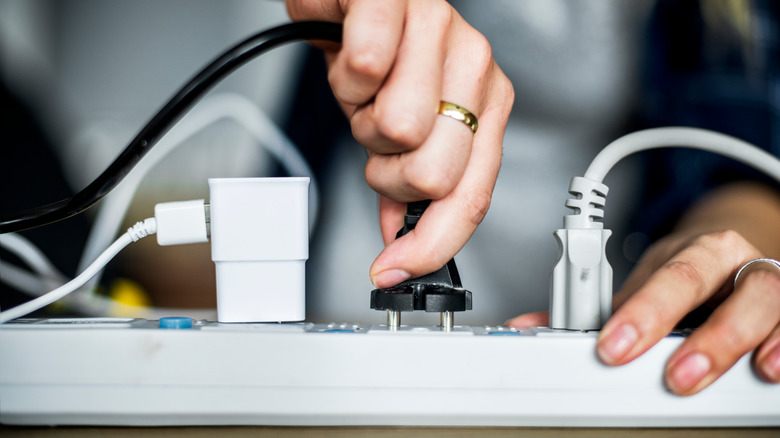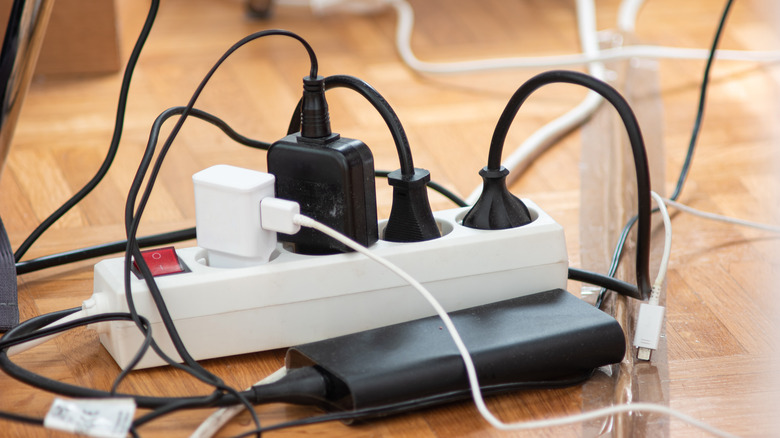The Biggest Mistakes You're Making With Extension Cords
Whether you only break out your extension cord during the holidays to trim your tree or you rely on one regularly to power that too-far-away lamp, there's no denying that they're handy tools around the house. And, with our increased reliance on technology, they're needed more than ever before.
However, the convenience of your extension cord could quickly become a major inconvenience — or even a catastrophe. Every year, extension cords cause roughly 3,300 home fires in the United States, injuring 270 people and killing 50, according to the Electrical Safety Foundation International. The reason? Cords can quickly overheat when used improperly. Furthermore, if placed in the wrong spot, extension cords can pose a tripping hazard.
So, in order to protect yourself, your loved ones, and your home, it's important to learn the right and wrong way to use these cords. Keep reading for the biggest mistakes you're likely making with extension cords.
The right and wrong way to use extension cords
Let's start with the simple stuff. Always check extension cords for damage before using (including loose connections, cracked or frayed sockets, or loose or bare wires), never use three-prong plugs in two-slot outlets, and don't try to plug cords into each other, according to Electrical Safety Foundation International (ESFI). Sounds simple enough, right?
In terms of placement, keep extension cords clear of standing water and snow if used outdoors; don't staple or nail them to walls or baseboard (this could cause electrical shock); and never run them through floors, walls, ceilings, or doorways. "If a cord is covered, heat cannot escape, which may result in a fire hazard," per ESFI.
When you're buying an extension cord, make sure it's been approved by an independent testing laboratory and that it's properly rated for its intended use, including whether it'll be used indoors and outdoors and what the power needs are of the device that'll be connected to it.
Don't ever use extension cords as permanent wiring. If you're doing this, overloading extension cords with too many devices, or using too many cords in your home overall, it could mean that your home simply has too few outlets for your needs, and you should have more installed.

